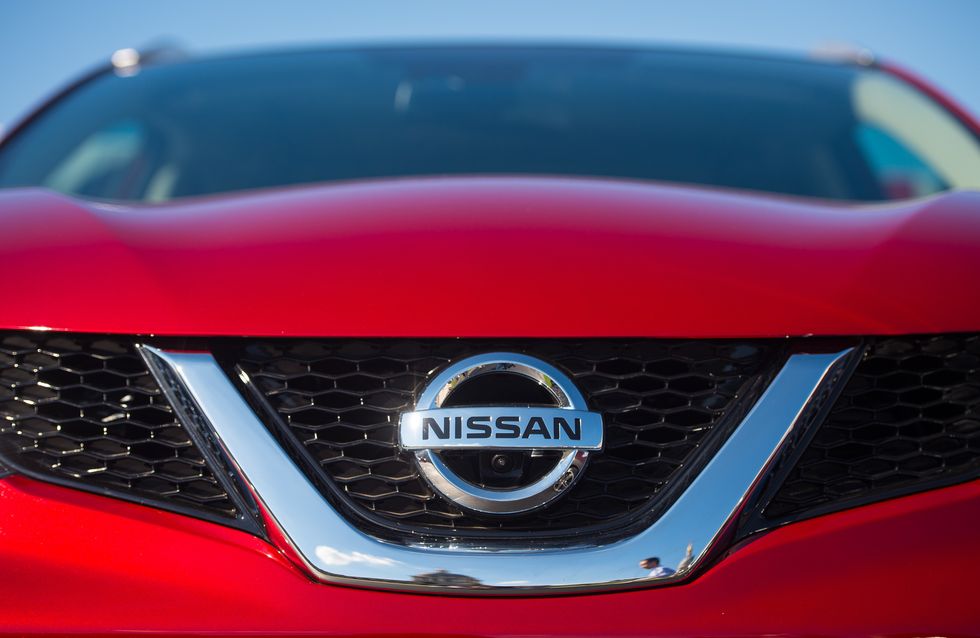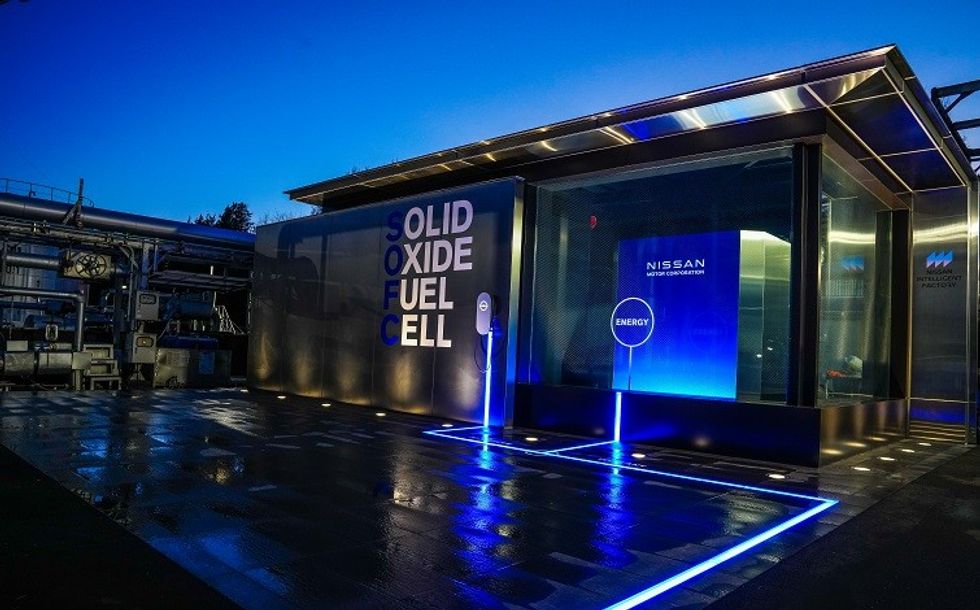Nissan has unveiled a new system capable of high-efficiency power generation to help its development of electric vehicles, supported by bio-ethanol.
Trials have already started at the brand’s Tochigi Plant in Japan, with the aim of improving power generation capacity in the hopes of having it fully operational from the end of the decade.
The solid oxide fuel cell (SOFC) can generate electricity using hydrogen obtained by reforming various types of fuels that react with oxygen, including ethanol and natural gas.
Nissan is aiming to achieve carbon neutrality across the company’s operations and product life cycle by 2050.

Nissan aims to be carbon neutral by 2050
PA
Kazuhiko Murata, corporate vice president responsible for Powertrain Production Engineering and Development, praised the new technology and highlighted the progress being made with its EVs.
He said: “There are major changes occurring in the transition from the internal combustion engine to electric vehicles.
“Nissan is taking up various technological development challenges in new areas, and SOFC power generation is one of our strengths.
“We will continue to contribute to the promotion of electrification and efforts toward carbon neutrality with Nissan-unique, innovative technologies.”
This comes as other car brands and organisations introduce new fuel technologies to help them decarbonise and meet net zero goals.
Even events like Goodwood Revival will see an increase in the use of more environmentally friendly fuel from 2024.
Competitors will be required to use a fuel which has a minimum of 70 per cent advanced sustainable components, in accordance with FIA rules.
These will be drop-in fuels, meaning drivers do not need to make any modifications to their vehicles, nor will they impact the performance of the vehicle when racing.
Racing legends including Sebastian Vettel and Jenson Button have praised the move to cleaner fuels, calling it “fantastic” and “so exciting” respectively.
The current standard grade of unleaded found on forecourts, E10, is already commonly used, with the petrol being blended with up to 10 per cent renewable ethanol.
While major strides still need to be made in the coming years, some experts have suggested that ammonia could be suitable for use in vehicles.
According to one expert, ammonia can be produced from renewables very easily and contains three times more energy than hydrogen, for instance.
LATEST DEVELOPMENTS:

Nissan’s solid oxide fuel cell (SOFC) will help the brand slash emissions
NISSAN
Speaking previously to GB News, Paul Quickenden, who has worked with ammonia for 20 years, said: “There’s nothing wrong with an internal combustion engine, it’s the fuel that needs to be changed.
“I mean the CO2 savings run into the hundreds and thousands of tons every year. It’s a very significant thing.
“I mean we could replace any diesel engine globally and cut all the CO2 emissions from them.”




